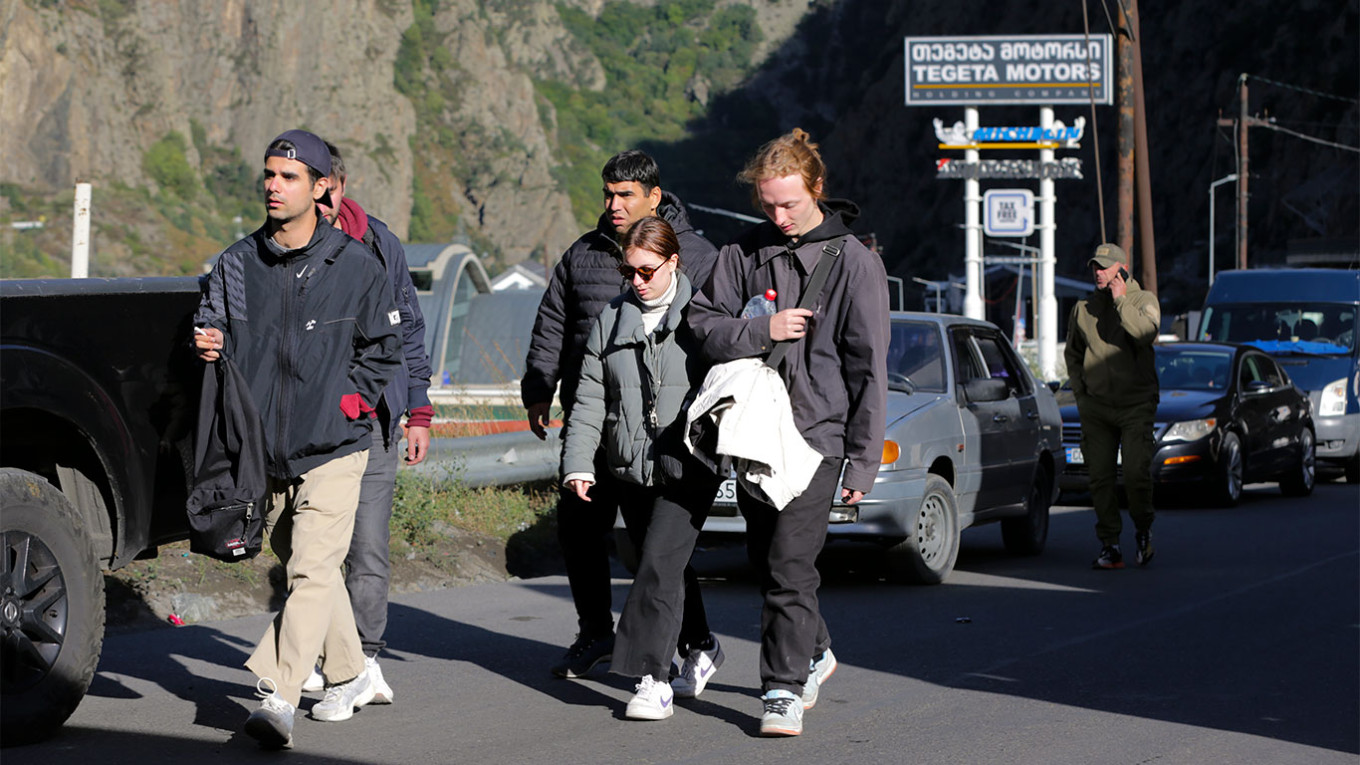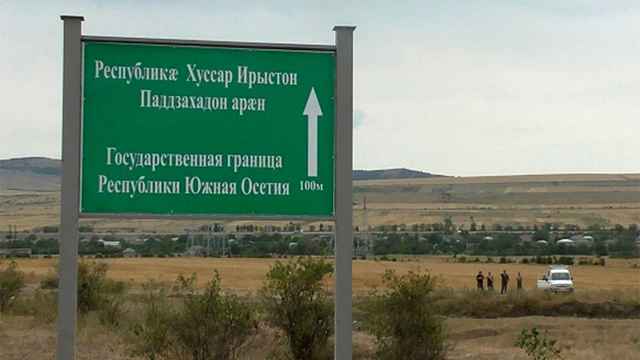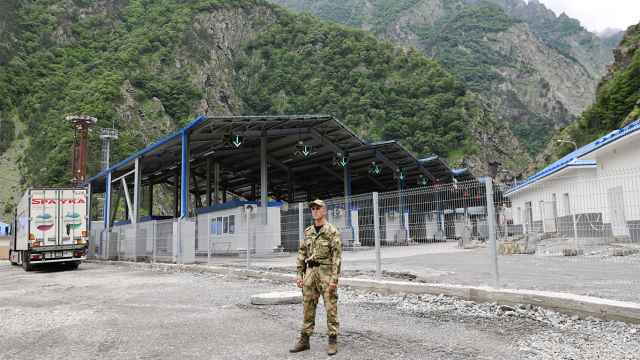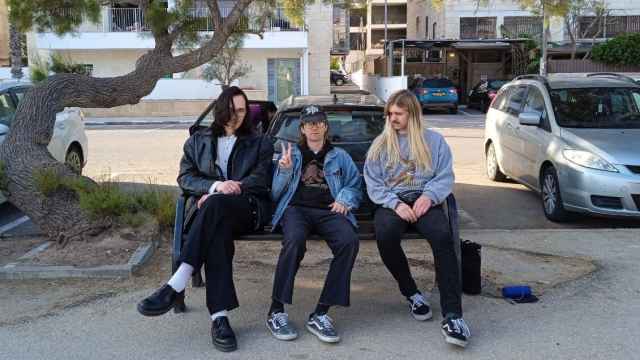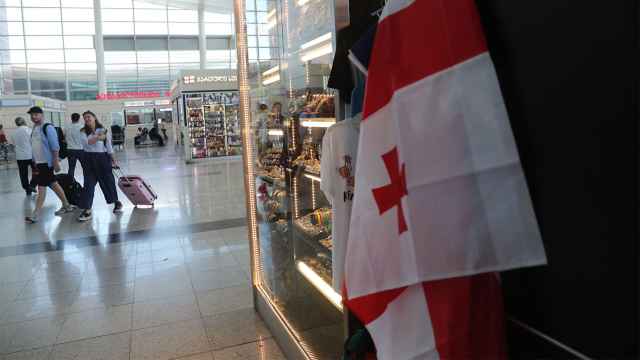Border guards in the South Caucasus nation of Georgia have denied entry to at least six independent Russian journalists and activists in the past two weeks, the Agentstvo investigative news website reported Wednesday.
Ex-Soviet Georgia, which shares a land border with Russia, became a popular relocation destination for anti-war Russians following the February invasion of Ukraine. But Georgian authorities have blocked a number of Russians from entering since at least late summer.
Georgia appears to have resumed its entry bans on Nov. 1, Yegor Kuroptev, who heads the South Caucasus branch of the Free Russia Foundation which helps Russian activists relocate abroad, told Agentstvo.
Pussy Riot protest group member Veronika Nikulshina said she was held up at the border for two hours and ultimately turned away on Nov. 1 despite having a six-month lease agreement in Georgia.
Fellow Pussy Riot member Gala Latygovskaya, who also works at the independent Mediazona news website, said she was put on a return flight without any explanation from border guards the next day.
Several members of the anti-Kremlin collective are based in the Georgian capital of Tbilisi.
Yekaterina Arenina, a journalist with the Proekt investigative outlet which is banned in Russia, said she was turned around at the Russian-Georgian border this Monday.
“It’s so cool when a state publicly condemns Russia and the war, and non-publicly bans those who oppose the war based on lists sent from Russia,” Arenina wrote on Twitter.
Kuroptev told Agentstvo that three more unnamed Russians with long-term housing contracts in Georgia have been denied entry in the past two weeks.
He said it was not immediately clear what caused the latest wave of refusals.
The activist noted that a number of previous refusals were lifted “after additional clarifications about the purpose of visits and other details.”
Georgian President Salome Zourabichvili said 700,000 Russians have arrived in her country since President Vladimir Putin announced a “partial” mobilization of reservists to fight in Ukraine in late September. She said around 100,000 of them remained in Georgia.
A Message from The Moscow Times:
Dear readers,
We are facing unprecedented challenges. Russia's Prosecutor General's Office has designated The Moscow Times as an "undesirable" organization, criminalizing our work and putting our staff at risk of prosecution. This follows our earlier unjust labeling as a "foreign agent."
These actions are direct attempts to silence independent journalism in Russia. The authorities claim our work "discredits the decisions of the Russian leadership." We see things differently: we strive to provide accurate, unbiased reporting on Russia.
We, the journalists of The Moscow Times, refuse to be silenced. But to continue our work, we need your help.
Your support, no matter how small, makes a world of difference. If you can, please support us monthly starting from just $2. It's quick to set up, and every contribution makes a significant impact.
By supporting The Moscow Times, you're defending open, independent journalism in the face of repression. Thank you for standing with us.
Remind me later.


